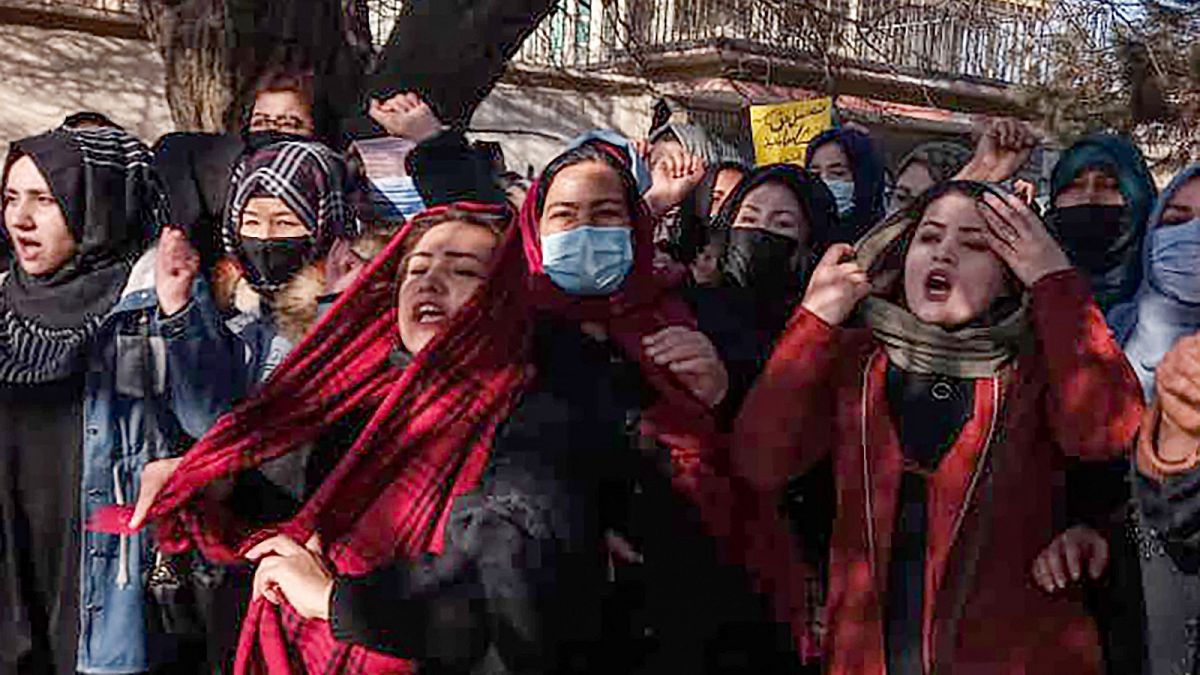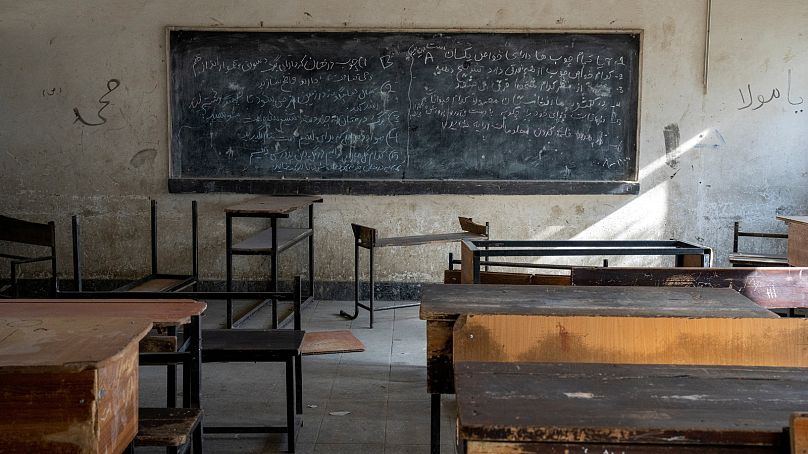The latest restrictions come just days after the Taliban banned female students from attending universities across the country.
The Taliban government on Saturday ordered all foreign and domestic non-governmental groups in Afghanistan to suspend employing women, allegedly because some female employees didn't wear the Islamic headscarf correctly. The ban was the latest restrictive move by Afghanistan's new rulers against women's rights and freedoms.
The development comes just days after the Taliban banned female students from attending universities across the country. Afghan women have since demonstrated in major cities against the ban, a rare sign of domestic protest since the Taliban seized power last year. The decision has also caused outrage and opposition in Afghanistan and beyond.
The order came in a letter from Economy Minister Qari Din Mohammed Hanif, which said that any NGO found not complying with the order will have their operating license revoked in Afghanistan. The ministry's spokesman, Abdul Rahman Habib, confirmed the letter's content to The Associated Press.
The ministry said it had received “serious complaints” about female staff working for NGOs not wearing the “correct" headscarf, or hijab. It was not immediately clear if the order applies to all women or only Afghan women working at the NGOs.
More details were not immediately available amid concerns the latest Taliban ban could be a stepping-stone to a blanket ban on Afghan women leaving the home.
“It’s a heartbreaking announcement," said Maliha Niazai, a master trainer at an NGO teaching young people about issues such as gender-based violence. “Are we not human beings? Why are they treating us with this cruelty?”
The 25-year-old, who works at Y-Peer Afghanistan and lives in Kabul, said her job was important because she was serving her country and is the only person supporting her family. “Will the officials support us after this announcement? If not, then why are they snatching meals from our mouths?” she asked.
Another NGO worker, a 24-year-old from Jalalabad working the Norwegian Refugee Council, said it was “the worst moment of my life."
“The job gives me more than a ... living, it is a representation of all the efforts I've made," she said, declining to give her name fearing for her own safety.
Also Saturday, Taliban security forces used a water cannon to disperse women protesting the ban on university education for women in the western city of Herat, eyewitnesses said.
According to the witnesses, about two dozen women were heading to the Herat provincial governor’s house on Saturday to protest the ban — many chanting: “Education is our right” — when they were pushed back by security forces firing the water cannon.
Video shared with media outlets showed the women screaming and hiding in a side street to escape the water cannon. They then resume their protest, with chants of “Disgraceful!”
One of the protest organizers, Maryam, said between 100 and 150 women took part in the protest, moving in small groups from different parts of the city toward a central meeting point. She did not give her last name for fear of reprisals.



